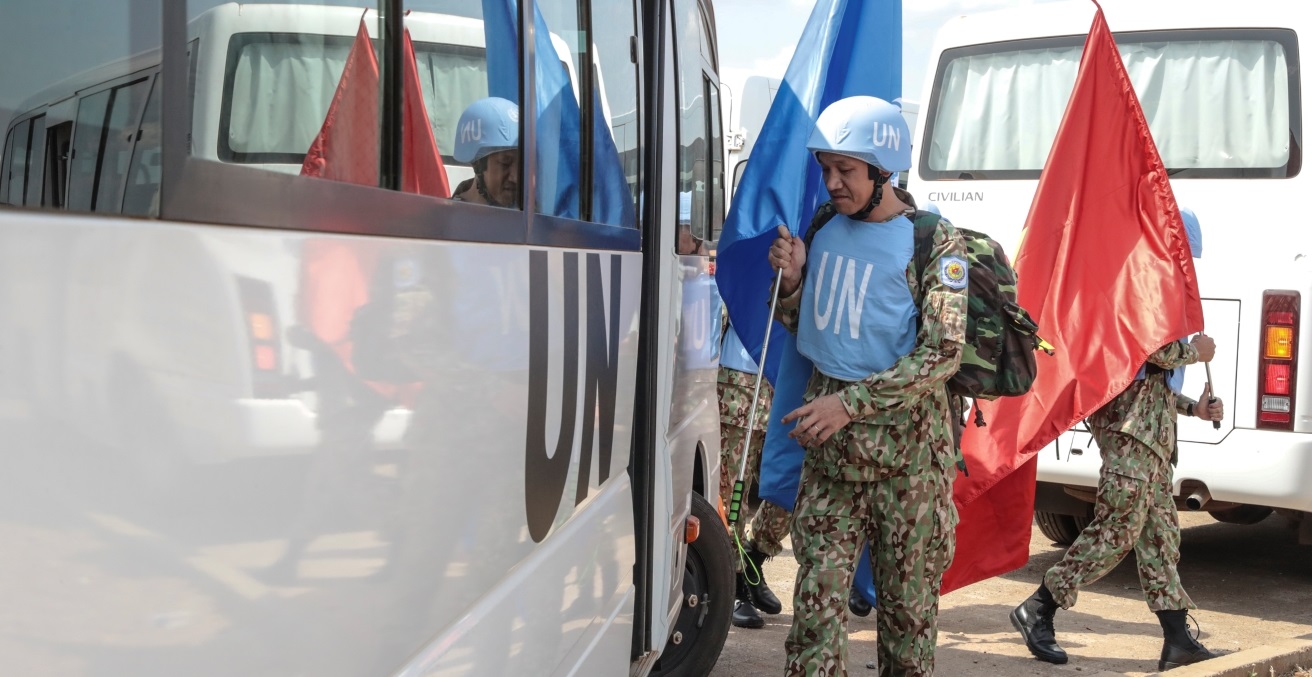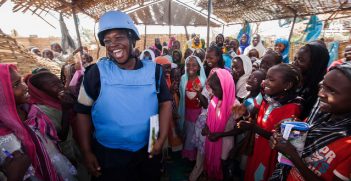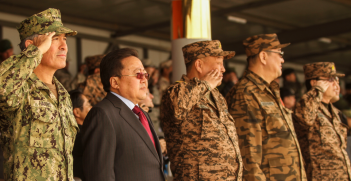Peacekeeping is a Double-Edged Sword

UN peacekeeping dangerously overlooks the reality that peace operations have both unintended and negative consequences. Any intervention into the politics and culture of a community is bound to create tensions between local practices and foreign peacebuilding practices.
Since its inception in 1948, peacekeeping and peacebuilding operations have been hailed by the international community as an effective, vital tool to stabilise conflict-ravaged countries and promote global peace. For everyday citizens unaffected by such conflicts, peacekeeping is generally perceived as a well-intended, necessary intervention to protect innocent civilians, prevent further conflict and assist with peacebuilding efforts. Peacekeeping involves the deployment of UN troops to support the implementation of a ceasefire or peace agreement during a conflict, though they often oversee overall peacemaking processes. Peacebuilding aims to reduce the risk of conflict reoccurrence by strengthening a state’s conflict management capabilities and facilitating reconciliation. However, these efforts do not guarantee success or local acceptance. In fact, peacekeeping and peacebuilding may do more harm than good.
Implicit ethical messages behind peacekeeping
The role that UN peacekeeping missions play in conflict-ravaged countries cannot be meaningfully examined without considering the implicit ethical messages that international officers, whether they be peacekeeping troops or administrative staff, carry through their attitudes and actions. While implicit ethical messages ideally promote mutual respect and inter-group collaboration with the local stakeholders of a given conflict, they often enforce notions of privilege and power held by foreigners. Attitudes of entitlement vis-à-vis local citizens can manifest through the presence of armed guards, excessive leisure activities and even modes of transportation.
For example, in Cambodia, the 1991-1993 United Nations Transitional Authority in Cambodia (UNTAC) forged a disparate economic divide between expatriates and non-UN employed locals. Outside of their mission, many UNTAC international officials spent their leisure time at hotels, shopping centres, restaurants, brothels, and bars, none of which the locals could afford. Although these lifestyle patterns did not directly affect the substantive work or agenda of the peacekeeping mission, they nevertheless acted as a lens through which local citizens, leaders, and stakeholder groups perceived the legitimacy of the mission itself. Indeed, this was particularly salient when UNTAC international officials became increasingly associated with prostitution. The rampant rise of HIV-AIDS saw the acronym UNTAC become ridiculed as the “UN Transmission of Aids to Cambodia.”
Further examples of the negative implicit ethical messages that can seep through peacekeeping missions are the 1999-2002 United Nations Transitional Administration in East Timor (UNTAET) and the subsequent United Nations Mission of Support in East Timor (UNMISET) from 2002 to 2005. While the overriding agendas of these UN operations were peacebuilding and state-building respectively, the practices adopted by the programs’ international administrators and officers signalled attitudes of privilege. By accommodating UN officials in “floating hotels” and using the same headquarters as the previous Indonesian administration, an “us vs them” mentality was cemented between the foreigners’ luxurious, flagrant lifestyles and the widespread poverty experienced by locals. Rather than integrating locals into a new post-conflict world, they were continually economically and culturally marginalised. Not only were locals restricted to menial jobs, but they were also confronted with the upheaval of Timor-Leste’s conservative, Catholic traditions as foreigners raised the demand for prostitution, pornography, and less conservative clothing. The implicit message that arose from these socio-cultural clashes between the local and international spheres was that UN administrators were privileged and prioritised their own comfort over bottom-up state-building and peace efforts. This resulted in local resentment, criticism, and frustration towards the foreign administration, some of which was expressed by damaging UNTAET vehicles.
The displacement of the “local” in peacebuilding
Current peacebuilding efforts tend to take a top-down approach to conflict resolution through state-building. State-building focuses on improving the administrative capabilities of the state to exercise authority and stability over its society. It carries the implicit view that conflict-ravaged countries are “failed states” that need assistance and support from external countries to prevent further escalations of violence. This mentality is flawed as it fails to fully involve and appreciate the totality of local populations.
Without an awareness of the inherent cultural differences between local and expatriate communities, any peacekeeping operation is bound to result in local clashes and resentment. However, cultural awareness alone is insufficient for implementing successful peacebuilding operations. The substantive content and strategies of peacebuilding must also be localised, rather than externally imposed.
Without meaningfully engaging with the insights and aggravations of local populations, the root causes of a conflict cannot be addressed to achieve long-term peace. It is especially important to allow for voices from various societal groups to be heard, rather than allowing elites, or a single religious or ethnic group, to dominate peacebuilding discussions. By creating platforms for open dialogue between domestic actors, at minimum there is an opportunity for grievances to be constructively shared and negotiated. Without this dialogue, grievances are more likely to be exacerbated through state-building efforts that entrench certain political groups or fail to truly understand the conflict in the first place. For example, in 1991 the United Nations Observer Mission in El Salvador (ONUSAL), which was established to oversee the post-civil war agreements between the government of El Salvador and Farabundo Martí National Liberation Front, sought to reform the country’s armed forces, police, and judicial systems, but the imposition of liberal economic governance frameworks also entrenched existing elite structures.
Where to now?
Instead of displacing the “local” by carrying implicit presumptions that more international intervention and top-down state-building are the only means of instigating sustainable peace processes, the international community should find ways to empower – not silence – local voices. This is not to say, however, that we should idealise local actors, nor that they will face fewer difficulties or criticisms in the methods they choose to resolve conflicts. But where local actors express a willingness to resolve conflict, international resources must be purposefully mobilised to support local peacebuilding efforts and leadership. Even where local actors are resistant to conflict resolution efforts and continue to be belligerent, the international community should nevertheless take a bottom-up approach in understanding the socio-cultural, political, and economic dimensions underpinning the conflict. For the United Nations to maintain its legitimacy and status as a leader of global peace, it must reassess its conventional approaches to peacekeeping and peacebuilding.
Natalie Seeto is studying a Bachelor of Arts (International Relations)/Bachelor of Laws at the Australian National University. She is interested in Southeast Asian affairs, peace and conflict studies, and post-colonial legacies. She is currently an intern at the AIIA National Office.
This article is published under a Creative Commons Licence and may be republished with attribution.





